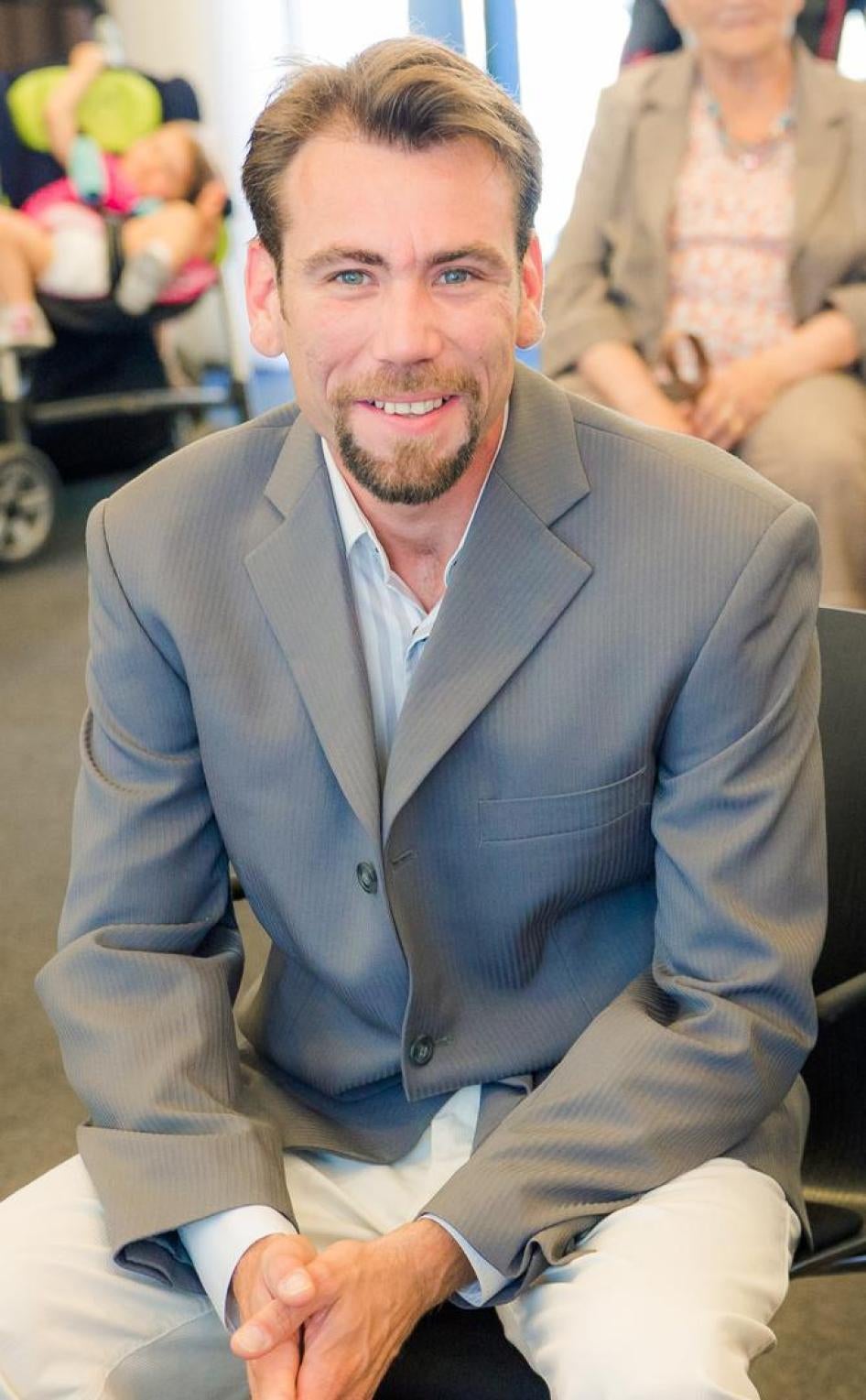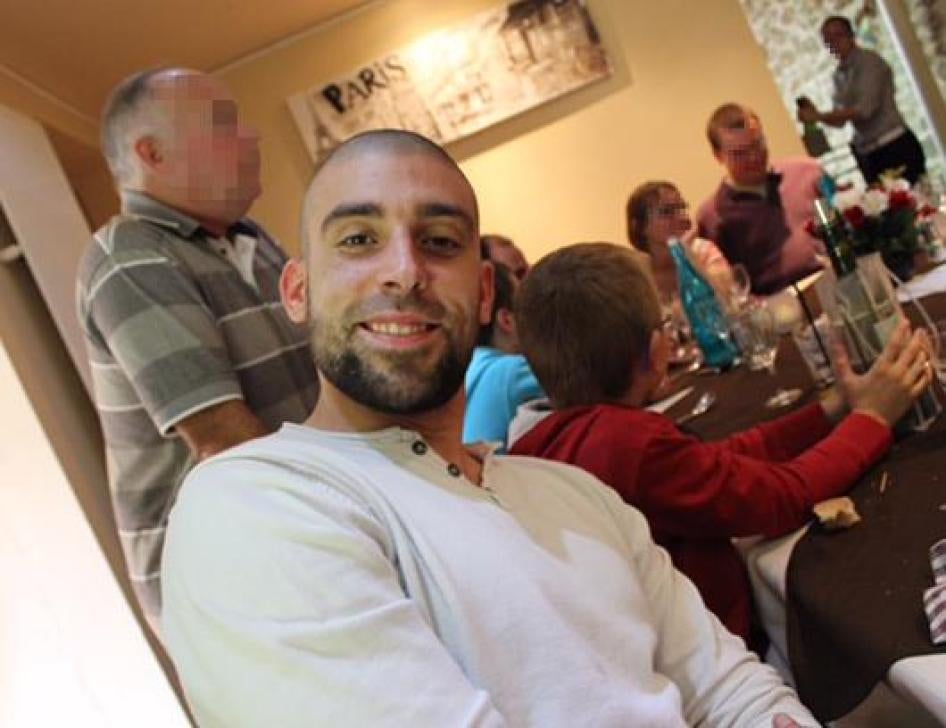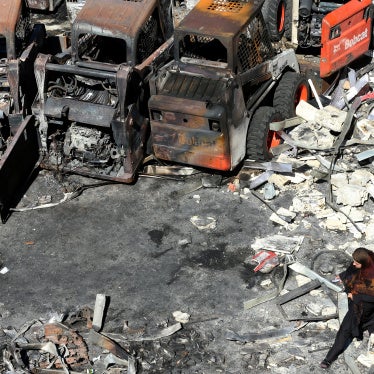(Tunis) – Moroccan courts recently sentenced two French citizens in unrelated cases to prison based largely on “confessions” written in Arabic, which they cannot read, Human Rights Watch, FIDH (the International Federation for Human Rights), and Amnesty International said today. Both defendants repudiated the confessions once they learned their contents.
The cases illustrate a pattern of Moroccan courts, well-documented by the three organizations, of relying on police statements as proof of guilt. The courts frequently ignore or hastily reject defense arguments that the police used questionable methods to obtain the statements and falsify their contents.
“In Morocco, even if the police prevent you from reading your ‘confession’ or type it in a language you don’t understand – once you sign, you’re basically on an express train to prison,” said Sarah Leah Whitson, Middle East and North Africa director at Human Rights Watch.
Police detained and questioned both Thomas Gallay, 36, and Manuel Broustail, 32, in French without a lawyer present, and then had each sign the purported minutes of their respective statements in Arabic, also without a lawyer present. In separate trials, a Rabat court sentenced Gallay to six years in prison and Broustail to four years, both on terrorism-related charges. Each has appealed. The appeals trial of Gallay and his co-defendants is scheduled before the Rabat Court of Appeals on November 23, 2016.
Both men said the police used pressure and deceit to persuade them to sign the statements, their lawyers told Human Rights Watch.
Gallay said police agents read back to him in French what he had actually said to them, and assured him that the document was merely administrative paperwork he had to sign before they released him. Throughout Gallay’s 12-day pre-arraignment detention following his arrest on February 18, 2016, the police did not tell him what he was accused of, and said they were questioning him about an acquaintance, said his lawyer, Abderrahim Jamaï, who is based in Kenitra.
Broustail told his lawyer, Abdelaziz Nouaydi, that the police told him in French that the typed Arabic statement contained harmless details about his identity, personal, and professional life – and promised to release him once he signed. He said that the police slapped him several times when questioning him.
Each man professed shock, after his lawyer later translated the statement into French, that they had signed a detailed, self-incriminating statement, the lawyer for each man said.
Gallay, who until his arrest worked remotely from Essaouira for a French firm as a micro-electronic engineer, repudiated the contents of the statement in front of the investigating judge hearing the case. He denied assertions in the statement that he had any connection to Islamic State (also known as ISIS) or to any terrorist activity and that he had ever converted to Islam.
The investigating judge nevertheless sent Gallay for trial on charges related to forming a terrorist group, along with eight Moroccan co-defendants. A minor, also charged in the case, was tried separately. Gallay maintains that he knew one casually, had met two others very occasionally, and had never met any of the six others, his family said.
The First Instance Criminal Chamber of the Rabat Court of Appeals, the chamber that hears terrorism-related cases, found him guilty, on July 14, of financially aiding persons aiming to commit terrorist acts, holding unauthorized public meetings, and organizing activities within an unrecognized association. The court sentenced all of his co-defendants to terms of between four and 18 years.
The court’s written judgment showed that it based the verdict against Gallay largely on his own purported confessions and on police statements in which the co-defendants implicated one another. The judgment does not reflect the language issue or his recantation other than to say, “he was free to sign or not to sign; and if not free, the burden was on him to prove it.”
Seven of the co-defendants also disavowed their statements at the trial while the eighth stated that he had no information linking Gallay to armed groups or activities.
Gallay, who his family says has no prior criminal record in any country, is in Salé prison. On October 14, Human Rights Watch and FIDH sent a letter to Moroccan authorities expressing their concerns about the trial, but have received no response.
Manuel Broustail, a former French soldier who had converted to Islam, was moving his family from Angers, France, to Séfrou, Morocco, when police arrested him upon his arrival at Fez airport on March 6. He had spent about two months under house arrest in Angers under a French Interior Ministry order after the November 2015 terrorist attacks in Paris.
Moroccan police searched Broustail’s luggage, as well as the home he had recently purchased in Séfrou, and seized a number of knives and two non-lethal air guns. They held him for 12 days in pre-arraignment detention, with no contact with a lawyer.
The police statement in Arabic that Broustail signed said he was an explosives expert who was leading a group of extremists in Angers, had praised the Paris attacks, was planning terrorist acts against French interests, and had failed to inform French authorities upon learning that an acquaintance was planning an attack on a police station. Broustail also “confessed” that the seized knives and air guns were for training purposes and that he had uploaded extremist material onto his computer, which police also seized.
After he saw a translation of his confession, Broustail categorically repudiated it during a hearing before the investigating judge on March 18, his lawyer said. Broustail said that he was a pious Muslim, but denied being an explosives expert or having any connection to terrorist groups, and said that the knives and air guns were relics of his army service, for household use, and not for any terrorist purpose. He denied uploading extremist content onto his computer but acknowledged that a friend may have done so.
The investigating judge, in his report sending Broustail for trial, did not address his allegation that the police had deceived and pressured him into signing the statement. He wrote that Broustail’s effort to disavow it was no more than an attempt to evade culpability.
The Rabat Court of Appeals tried Broustail alone and convicted him on October 20. The prosecution based its case solely on his repudiated “confession” and the materials seized. The court sentenced him to four years in prison on charges of forming a gang to prepare and commit terrorist acts; possessing illegal arms in the framework of a collective plan to grievously harm the public order; praising terrorism, and failing to denounce a terrorist offense. The court has not yet issued its written judgment.
Broustail has filed an appeal but no date has been set. He is in Tifelt 2 prison.
Morocco’s Code of Criminal Procedure guarantees the right of anyone accused of a criminal charge to consult a lawyer within the first 24 hours of custody, or within the first six days in terrorism cases under certain conditions. However, Moroccan legislation does not give the defendant the right to have a lawyer present during the police interrogation or when the statement is presented for signature.
“Morocco is obligated to ensure that the right to a fair trial is guaranteed in practice as well as in theory,” said Dimitris Christopoulos, president of FIDH. “The effective protection of a range of other civil liberties very much depends on whether the Moroccan government enhances safeguards in the justice system and halts systematic fair-trail violations.”
Additional Details of the Thomas Gallay case
Police arrested Gallay, who holds French and Swiss citizenship, on February 18, 2016, in Essaouira, where he lives, and took him to Rabat.
Gallay’s family said that the police did not inform him of the charges he faced. This would violate the International Covenant on Civil and Political Rights (ICCPR), article 9(2) and the Moroccan constitution, article 23, which states, “any person who is detained must be immediately informed, in a manner that is understandable to him, of the reasons for his detention.” His family said that police who arrested him gave him no information, while personnel who placed him in pretrial detention said he was not under suspicion but was needed for the investigation into a co-defendant, M.L.
In pre-arraignment detention, he signed two statements in which he “confessed” to converting to Islam, supporting ISIS and giving money to a co-defendant who he knew supported ISIS, and organizing meetings with the same co-defendant and others at his home. Gallay signed the more detailed and self-incriminating statement on February 19, before he had access to his lawyer.
Gallay’s family said that, contrary to what the police minutes state, Gallay was unable to notify them of his arrest. This would violate Morocco’s Code of Criminal Procedure, which states in article 67 that “the judiciary police officer must notify the family of the detainee as soon as a decision is taken to place him in garde à vue.”
Gallay learned the contents of the police statements only when he went to court. He immediately repudiated them, his lawyer said, denying all of the assertions.
Abderrahim Jamaï, Gallay’s lawyer, said that during both the investigative phase and the trial, he unsuccessfully challenged the admissibility of Gallay’s police statements and asked the court to summon the agents who interrogated his client to testify.
The court in its written judgment stated that it heard no reason that would warrant suppressing those statements, citing article 290 of the Code of Criminal Procedure, which provides that in misdemeanor offenses leading to prison sentences of under five years, statements prepared by the police are to be deemed trustworthy in the absence of proof showing the opposite.
The court convicted Gallay on three charges:
- Financially assisting persons for the commission of terrorist acts (articles 218-1 (para. 9), 218-6 and 218-7 of Law 03-03 of May 28, 2003 on Combating Terrorism);
- Holding public meetings without prior authorization (articles 3 and 9 of Law n° 1-58-377 of November 15, 1958 on Public Gatherings); and
- Conducting activities inside an unauthorized association (articles 5 and 6 of Law n° 1-58-376 of November 15, 1958 on the Right of Association).
The court sentenced Gallay to six years in prison, and expulsion from Morocco upon completing his prison term. He has been detained since his arrest, the court having rejected motions to provisionally release him before trial.
The other defendants in the case received between four and 18 years in prison.
At trial, all of the defendants except M.L, who was represented by a pro bono counsel and received by far the longest sentence (18 years), recanted their statements to the police. At trial, M.L. contested parts of his police statement, including where he linked Gallay to terror-related activities.
Defendant Mohamed Masbouqi had no lawyer present when police questioned him or handed him his statement to sign, his lawyer, Ali Amar, told Human Rights Watch. Masbouqi signed without reading it because the police assured him they would release him afterward, Amar said. He added that Masbouqi was shocked when, before the investigating judge, he learned what he had “confessed” to.
A Pattern of Accepting Disavowed Confessions with Insufficient Scrutiny
In its 2013 report, “Just Sign Here”: Unfair Trials Based on Confessions to the Police in Morocco, Human Rights Watch documented several criminal trials in which the defendants credibly alleged that the police had either tortured, coerced or tricked defendants to sign statements without reading them. Appearing before the judge, those defendants disavowed the police statements, claiming they were fabricated.
This did not, however, prompt the court to investigate in any serious way whether the defendant’s statement was accurate and voluntary before using it as the main basis for a guilty verdict, even though the Code of Criminal Procedure states in article 293 that no statement is admissible in court if obtained using violence or coercion. The United Nations special rapporteur on torture reached similar conclusions in a 2013 report.
Under article 14 of the ICCPR, to which Morocco is a party, everyone has the right “to have the free assistance of an interpreter if he cannot understand or speak the language used in court” and “not to be compelled to testify against himself or to confess guilt.”
The UN Human Rights Committee, the authoritative commentator on the covenant, has held that the right to an interpreter “enshrines another aspect of the principles of fairness and equality of arms in criminal proceedings. This right arises at all stages of the oral proceedings.”
Human Rights Watch, Amnesty International, and FIDH urge Moroccan authorities to amend domestic legislation in accordance with international law and standards to ensure that the right to a fair trial is adequately protected, in particular that a detained person has the right to “prompt access to a lawyer and, unless the person has waived this right in writing, shall not be obliged to answer any questions or participate in any interrogation without his or her lawyer being present,” in keeping with the Principles and Guidelines on the Right to a Fair Trial and Legal Assistance in Africa, 2003. Legislators should also adopt legislation to ensure that no one is subjected to improper pressure or deceit to sign a statement, including in a language the person cannot read.
Lawmakers should also revise article 290 of the Code of Criminal Procedure that in cases involving penalties of no more than five years of prison, allows judges to presume the credibility of statements prepared by the police unless the defense can prove the opposite. This provision undermines the presumption of innocence and a defendant’s right to “equality of arms,” that is, the possibility to present evidence on the same basis as the prosecution. The UN Working Group on Arbitrary Detention considers that article 290 of the Penal Code contradicts the presumption of innocence by reversing the burden to prove guilt through evidence, and instead creating a burden to prove innocence.










